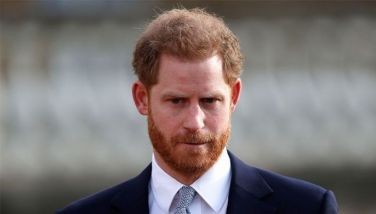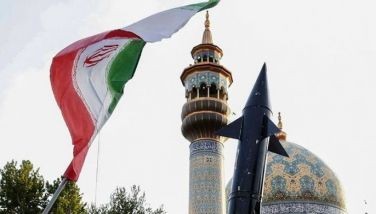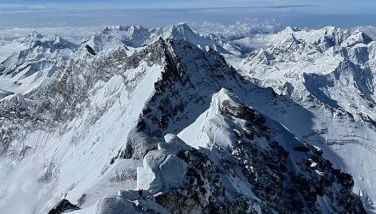When giants fall: Sports loses Ali, Howe, Palmer, Summitt
Mighty sequoias fell in sports in 2016, transformational figures who reshaped the games and the culture — from Muhammad Ali to Gordie Howe, from Arnold Palmer to Pat Summitt.
And there was loss much too soon. The famous poem "To an Athlete Dying Young" tells of a runner and his town, and how "shoulder-high we bring you home." So it was with the Miami Marlins and 24-year-old pitcher Jose Fernandez , killed in a boating accident.
Along the way, other lives lit up sports across the years:
Baseball said goodbye to Ralph Branca , the Brooklyn Dodgers pitcher who spent a lifetime discussing his high-inside fastball that Bobby Thomson hit for "The Shot Heard 'Round the World"; Monte Irvin, 96, the New York Giants Hall of Famer who was part of the first wave of top black players; and Joe Garagiola, the famously mediocre catcher who brought a comic's touch to the broadcast booth.
Basketball lost Jim McMillian, the Columbia forward who helped the Los Angeles Lakers team of Wilt Chamberlain and Jerry West win the 1972 crown; Dwayne "Pearl" Washington , the Syracuse dynamo who sent Big East basketball soaring in the 1980s; and Nate Thurmond, a force at center who could anchor any Warriors team of any era.
Gone in boxing was Aaron Pryor, a relentless fighter who dueled with Alexis Arguello in the 1980s. In football, it was Buddy Ryan, the pugnacious defensive master who coached two NFL teams and was coordinator for the dominant 1985 Chicago Bears; Dennis Byrd, the Jets lineman who went on to walk after being paralyzed in a 1992 game; and Dennis Green , who coached Minnesota and Arizona and was the NFL's second black head coach.
Hockey mourned Andy Bathgate, the high-scoring New York Rangers right wing and 1959 NHL MVP. Skiing remembered Bill Johnson , the American downhiller who backed up his big talk with Olympic gold in 1984.
Soccer is now without Johan Cruyff, whose wizardry made the freewheeling Dutch of the 1970s the envy of the sport. Joao Havelange , who built FIFA into a global gold mine and a breeding ground for widespread corruption, died at 100.
Bud Collins and Craig Sager will be remembered for their sports journalism and their fashion choices. Collins, in newspapers and on TV, brought insight, wit and heart to tennis, his passion matched only by his wardrobe's pinks and prints. Sager, a broadcaster bedecked in sports jackets that spilled out of a psychedelic dream, worked NBA sidelines with diligence and humor, and made a gallant last stand against leukemia.
___
Muhammad Ali, 74
On that last ride, the one through his hometown, the windshield of the hearse was covered with so many strewn flowers the driver could barely see the road let alone the throngs lining the streets.
Muhammad Ali was back where it all began, in Louisville, Kentucky, where he launched a career that would shake up the country and the world like no athlete before or after him.
He was a three-time heavyweight champion , an audacious mix of speed, dazzle and brute force — a stark counterpoint years later to the shuffling man with a whisper slowed by Parkinson's and countless punches.
His fights with Joe Frazier were an epic trilogy. He shouted and preened. He reminded us he could "float like a butterfly, sting like a bee." He proclaimed himself The Greatest. He did it with wit and guile, boasts and taunts, in prose and rhyme, and always with a wink. He understood the needs of the marketplace and the showmanship that goes with ticket sales.
Ali fought everywhere — Germany, Malaysia, the Philippines, Zaire. He said they would know him in an Asian rice paddy, and who would doubt him?
Ali lost prime years as a fighter, refusing military induction during the Vietnam War. He spoke up when that was not in fashion. He changed his religion and his name. He became a flash point for a country on edge.
Time softened the rancor. By the end, he was a national monument, a global ambassador. At the 1996 Atlanta Olympics, he stood, shakily, with torch in hand at the cauldron. Even then, like a butterfly, he could take flight.
"The man who has no imagination," he once said, "has no wings."
___
Gordie Howe, 88
He was as elemental to the game as ice.
Gordie Howe came out of the hard Saskatchewan prairie and presided over his sport for five decades. No one disputed his singular place in the game. He was Mr. Hockey.
Even Wayne Gretzky acknowledged the preeminence of No. 9 of the Detroit Red Wings, and it was no coincidence Gretzky wore No. 99.
Howe joined the NHL just after World War II, and before he was done finished with 801 goals and 1,850 points — records Gretzky would go onto break. He led the Red Wings to four Stanley Cups and was MVP six times.
Legions of Canadian kids grew up wanting to be Gordie Howe. He was a player with vision, grit and a shot that would pulverize goalies, although that wasn't the only way he hurt opponents. Sticks and checks and fists were the flip side to his majesty on the ice.
"He was as strong as a moose and knew every angle," Hall of Fame linemate Ted Lindsay said.
Family was paramount, and when he left the NHL at 45 to join the renegade WHA, nothing gave him more pleasure than to play beside sons Mark and Marty. This Methuselah with a slap shot came back to the NHL at 52.
"He was," former Flyers captain Bobby Clarke said, "the ultimate professional hockey player."
___
Arnold Palmer, 87
His was a life well played.
When golfers today look around at the big prize money on offer, the television coverage all over the world, the sponsorship plums to be plucked and the place golf holds in the sports conversation, they can take a 3-iron from their bag, hold it aloft and thank Arnold Palmer .
"He was The King of our sport and always will be," Jack Nicklaus said.
Palmer never much cared for the regal honorific. His roots were in western Pennsylvania, and with sinewy wrists, a whip of a swing, a swaggering glint in his eye and a cigarette never far from his fingers he carried an entire sport into a new age. Palmer and TV came along at the same time. They did quite nicely. It was a happy marriage.
Long before the mania of Tiger Woods swept the sports landscape, Palmer put it all in motion.
"If it wasn't for Arnold, golf wouldn't be as popular as it is today," Woods said.
Palmer won seven majors and 62 PGA tournaments, and his rivalry with Nicklaus gave golf its juice.
Palmer had a daring game, a gambler's instinct and a connection to the gallery that liberated golf from its country-club enclaves. And he was fortified by "Arnie's Army," his band of volunteers, ready at all times for the commander to walk the fairway.
___
Pat Summitt, 64
When she was 38 and deep into a pregnancy, Pat Summitt insisted on making a recruiting trip to Pennsylvania. After all, she had a job to do.
But the timing was off for the Tennessee basketball coach. Her water broke while she was making her recruiting pitch. A frantic ride to the airport followed, although Summitt was the calmest one around.
The plane was prepared to stop in Virginia. But Summitt, who bleeds Volunteer orange, wouldn't hear of it. Damned if her child would be born anywhere but Tennessee. And so he was.
Her stare could crack steel. Her authority was unchallenged. She coached 38 years at Tennessee. Even Peyton Manning, when playing football for the school, sought her advice.
She became the first NCAA coach to reach 1,000 wins. Her showdowns with UConn counterpart Geno Auriemma became the sport's signature rivalry.
She moved women's basketball into big-time arenas. And when the conversation turns to the game's greatest coaches — man or woman — her name is part of it.
Her coaching — and her life — was cut short by early onset dementia. Her legacy, as President Barack Obama noted, was not in the championships but in her example and her call for young women to "practice hard, play harder and live with courage on and off the court."
___
Jose Fernandez, 24
Maybe these are the images to remember: the succession of batters flailing at his pitches; his Cuban grandmother in the stands and watching him pitch for the first time; the unrestrained exuberance of him pounding the dugout railing, the joy of baseball, pure and simple.
But other images are just as indelible for Jose Fernandez , the Miami Marlins right-hander with so much skill and promise: his No. 16 carved into the pitching mound dirt; the tearful leadoff home run by teammate Dee Gordon in the Marlins' first game after his death; the trumpet's haunting notes of "Take Me Out to the Ball Game."
Fernandez arrived in Miami accompanied by a riveting story. On his fourth attempt to flee Cuba, at age 15, he jumped into the water to save his mother after she fell overboard.
And as the sea proved a starting point on his way to stardom, so it was the finish. On a September night after a game, Fernandez and two friends died when their boat crashed at high speed into rocks near Miami Beach. The medical examiner would rule alcohol and cocaine were in his system.
Fernandez spent four seasons in the majors. He was twice an All-Star and had a 38-17 record. He was NL Rookie of the Year in 2013. He had a live arm, a winning smile, an entire community behind him and a future possibly pointed to Cooperstown.
He and his girlfriend were expecting their first child. She was joined in her grief by all of baseball.
"Sadly," Marlins owner Jeffrey Loria said, "the brightest lights are often the ones that extinguish the fastest."
___
Contributing to this report were AP sports writers Tim Dahlberg, Doug Ferguson, Larry Lage, Steve Megargee, Tim Reynolds and Steven Wine.
- Latest
- Trending



























